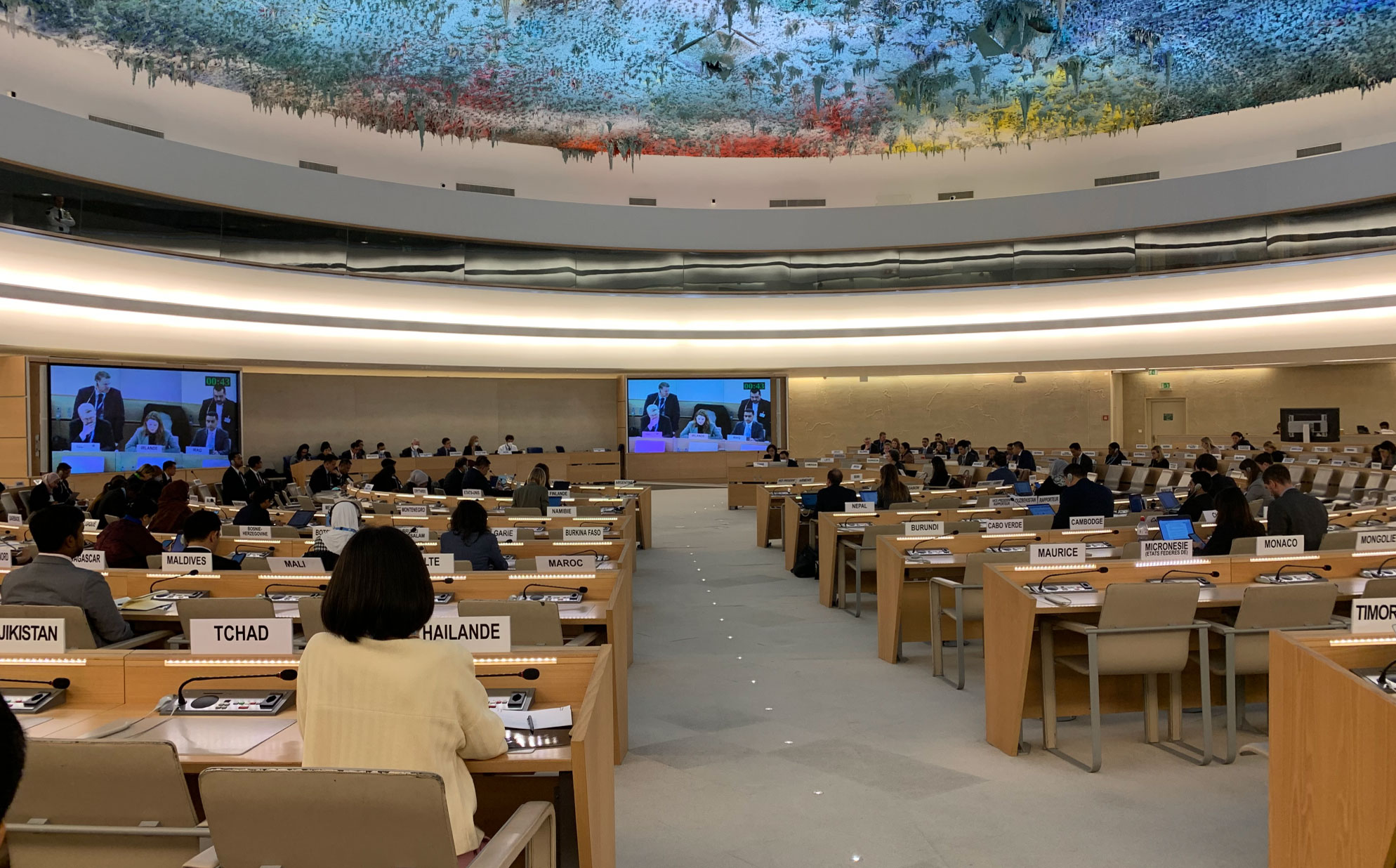The head of the Women and Health of the Confederation of Indigenous Nationalities of the Ecuadorian Amazon (CONFENIAE) participated in the Universal Periodic Review (UPR) in Geneva. As a member of a confederation that brings together 11 nationalities and 23 organizations of the Amazon region, the Waorani leader explains that this instrument allows Indigenous Peoples to make their reality and the abuses they suffer known.
The head of the Women and Health of the Confederation of Indigenous Nationalities of the Ecuadorian Amazon (CONFENIAE) participated in the Universal Periodic Review (UPR) in Geneva. As a member of a confederation that brings together 11 nationalities and 23 organizations of the Amazon region, the Waorani leader explains that this instrument allows Indigenous Peoples to make their reality and the abuses they suffer known.
Lola García-Alix: Is this your first time participating in the Universal Periodic Review in Geneva?
Nemo Andi: That's right. This is the first time that I am attending on behalf of Ecuador. We have participated as leaders of the Amazon, and we have accompanied our mother organization which is the Confederation of Indigenous Nationalities of Ecuador (CONAIE).
LGA: Is this revision of the UPR a useful instrument to make visible the problems and demands of Ecuador's Indigenous Peoples?
NA: For the Indigenous Peoples it is extremely important because it allows us to make visible the problems we have in our territories. We are the owners of the territory, but we are being oppressed by the State and suffer violations and abuses. So, in some way, it can be made visible through these examinations.
LGA: What was your assessment of the report presented by the Ecuadorian State?
NA: Our perception has not been positive because the report they have presented is not what we had hoped it would be. So we are a bit dismayed because it is not representing the reality nor the truth. We want the other States to be aware of our situation.

The indigenous delegation of Ecuador: Zenaida Yasacama, Vice President of CONAIE; Leonidas Iza Salazar, President of CONAIE; and Nemo Andy Guiquita. Photo: Lola García-Alix

The indigenous delegation of Ecuador: Zenaida Yasacama, Vice President of CONAIE; Leonidas Iza Salazar, President of CONAIE; and Nemo Andy Guiquita. Photo: Lola García-Alix
LGA: How do you evaluate the participation of the Indigenous Peoples' Delegation of Ecuador in this UPR session?
NA: Our presence has been very useful in order to be able to talk with other States and have them recommend our position and vision. We have spoken the truth about all that is happening in the Amazon, the jungle and the Ecuadorian coast. For this reason, we consider the Universal Periodic Review to be a very valuable instrument.
LGA: Do you think that CONAIE and CONFENIAE will be able to use this instrument when they return to your country?
NA: We are going to inform our organizations about what happened here in Geneva. We are going to transmit what we have been doing, what we have heard and what we have learned to our territories.
LGA: Is there anything that has been of particular concern to you?
NA: Unfortunately, the government is using one of our Indigenous colleagues to speak on behalf of the Indigenous Peoples. That worries us because it can cause a division in our organizations. So, yes, I am concerned.
LGA: What is your final feeling about your participation in this UPR session?
NA: We leave satisfied for having done our work. Our objective was to come and talk to the High Commissioner for Human Rights so that they could incorporate our observations in their reports. And we have also been able to talk with the different States. That is why it is very favorable for us to have participated. This experience is useful for our organizations and our territory.

Room of the 41st session of the Universal Periodic Review. The Working Group assesses the human rights situation of United Nations Member States. Photo: Lola García-Alix

Room of the 41st session of the Universal Periodic Review. The Working Group assesses the human rights situation of United Nations Member States. Photo: Lola García-Alix
